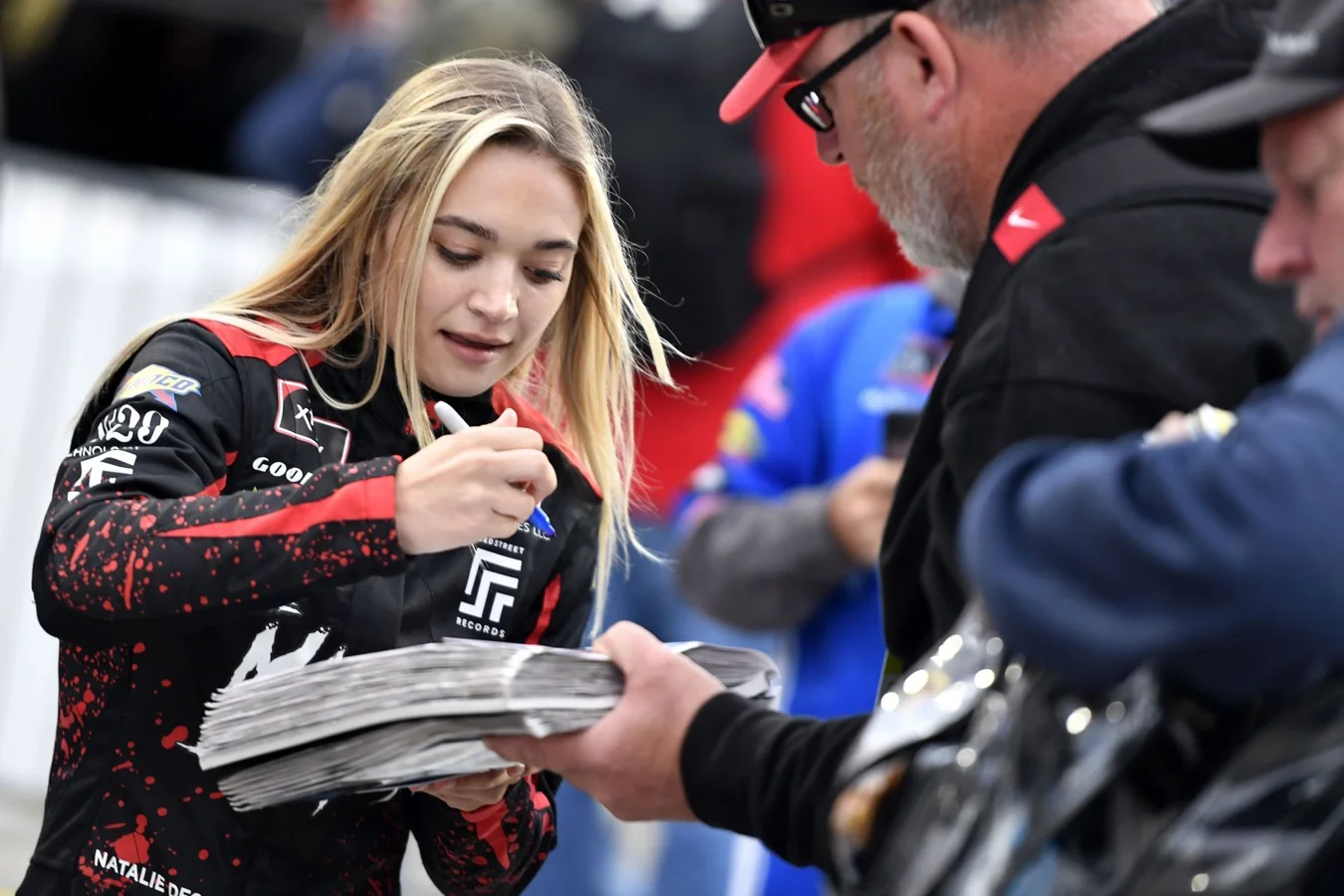Natalie Decker is officially set for her highly anticipated return to the Xfinity Series, marking her Natalie Decker NASCAR comeback 2025 only six months after stepping away to welcome her first child. The accomplished driver, now a mother to son Levi with husband Derek Lemke, will make her on-track comeback in the No. 92 DGM Racing chevrolet/”>Chevrolet ZL1 during the Wawa 250 Powered by Coca-Cola at Daytona International Speedway on August 22.
This return has sparked excitement among fans and insiders alike, as Decker’s presence brings a renewed energy and competitive edge to a sport longing for fresh narratives and personalities. Many have closely followed her career, noting both her resilience and determination to break through barriers within NASCAR’s competitive landscape.
Transitioning from Racing to Motherhood and Back
Stepping away from NASCAR to embrace motherhood raised questions among fans and commentators regarding the direction of Natalie Decker’s career. Speculation grew about whether her break would lead to a full departure from professional racing, echoing a familiar refrain whenever life milestones intersect with the careers of high-profile female athletes.
However, Decker’s career has always been defined by her ability to confront challenges directly and overcome adversity in a male-dominated environment. She has faced ongoing scrutiny about her place on the track, persistent doubt about her skills, and the pressure of needing to earn her status repeatedly amid skepticism common to women drivers.

The transition away from racing, even for the meaningful experience of motherhood, presents an emotional challenge. For Decker and many drivers, racing is more than a job—it is a core part of identity and a deep passion. The decision to pause a relentless pursuit of excellence, even for a significant personal event, is not made lightly and comes with emotional weight.
Preparing for a Demanding Return at Daytona
Returning to NASCAR competition is far from a casual reentry for Natalie Decker. Restarting at Daytona, known for its high speeds and the intensity of close-quarter racing on its famed 3.560-mile layout, sets the stage for a dramatic comeback. As she lines up at the Wawa 250, she faces a field that has only become more competitive during her absence, while technological advancements in the vehicles demand quick adaptation.
Resuming top-tier racing means adjusting not just physically, but mentally, especially when adapting from the routines of parenthood to the intense focus needed on race day. Daytona’s challenging reputation amplifies the pressure: one error can dramatically alter the trajectory of a much-anticipated comeback. The broader racing community is also eager to see whether motherhood will reshape Decker’s perspective and style—will it foster greater caution or stoke a stronger competitive fire? Many believe that the motivation of racing for her son may sharpen her on-track ambitions.
What Decker’s Return Means for NASCAR and Representation
Natalie Decker’s return is about more than an individual’s racing ambitions. It highlights ongoing shifts in professional sports towards greater representation and the breaking down of barriers that have historically limited opportunities for women. Her determination to resume top-level competition as both a parent and an athlete signals that NASCAR no longer demands an all-or-nothing choice between personal life and professional aspiration.
The sport itself stands to benefit as Decker—alongside others—demonstrates that female drivers can not only participate but succeed at high levels. NASCAR’s efforts to diversify its field and broaden its audience are supported by narratives like Decker’s, challenging the status quo and expanding the sport’s appeal beyond traditional viewers who have grown accustomed to familiar faces week after week.
Potential Influence Beyond the Track
The Xfinity Series has served as a launching pad for future Cup Series talent, and Decker’s journey back can serve as a model for drivers navigating pivotal life decisions. If her return proves successful, it may encourage both NASCAR and its teams to provide more flexibility, helping retain talent by recognizing that family commitments and racing careers can exist in harmony.
Her comeback could help shift perspectives—showing that opting for family milestones does not signal the end of an athlete’s professional road. This approach could inspire other athletes, especially women, to pursue both their personal and professional goals without compromise, and may promote policy or cultural adjustments within the sport itself.
Natalie Decker, her family, and supporters now look toward August 22, when she will again take her place among the sport’s elite at Daytona International Speedway, once more fueling the intense spirit and vibrant energy that have defined her path in racing. The outcome of her return will surely be watched closely, not only by devoted NASCAR fans but by advocates for diversity and progress in sports on a larger scale.
